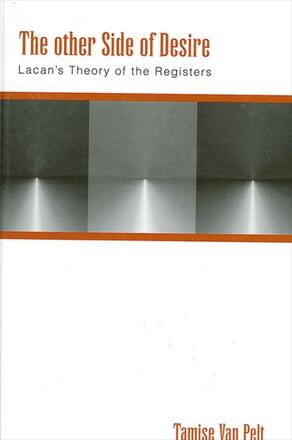
The other Side of Desire
Lacan's Theory of the Registers
Alternative formats available from:
Explores Lacan's theory of the registers through readings of a wide variety of texts.
Description
The other Side of Desire puts Jacques Lacan's theoretical constructs to work on texts as varied as Plato's Symposium, Hamlet, Tootsie, and the journals of Sylvia Plath, making the techniques of Lacanian analysis accessible to a wide variety of readers. Moving from oppositional readings of Lacan himself, through Lacan's search for an alternative to oppositionality, to his solution in the theory of the registers, Van Pelt rereads Lacan's most significant essays on aggressivity, the mirror stage, the subversion of the subject, and the signification of the phallus, making explicit the reading practices implicit in Lacan's first seven Seminars and his Écrits. Throughout, Van Pelt demonstrates Lacanian theory's pivotal role in the intellectual transition from the poststructuralism of the mid–twentieth century to the post-humanism of the twenty-first.
Tamise Van Pelt is Assistant Professor of English at Idaho State University.
Reviews
"I like the analytic and structural purity of the book and its general conceptual shape and progression: from a criticism of critics, to an explication of the theoretical constructs misconstrued by the critics, to a 'practical' application of the constructs in a fresh and brilliant reading of Plath's diaries and poems. Since Lacan is for me the most important thinker for the humanistic disciplines after World War II, nothing is more significant than work like Van Pelt's that truly does contribute to great clarity about his fundamental concepts and his radically new model of the psyche. Van Pelt's demand for and demonstration of a more rigorous kind of reading of his texts is crucial for the advancement of human self-understanding and the maintenance of the dignity of humanist studies." — Maire Jaanus, coeditor of Reading Seminar XI: Lacan's Four Fundamental Concepts of Psychoanalysis: The Paris Seminars in English and Reading Seminars I and II: Lacan's Return to Freud